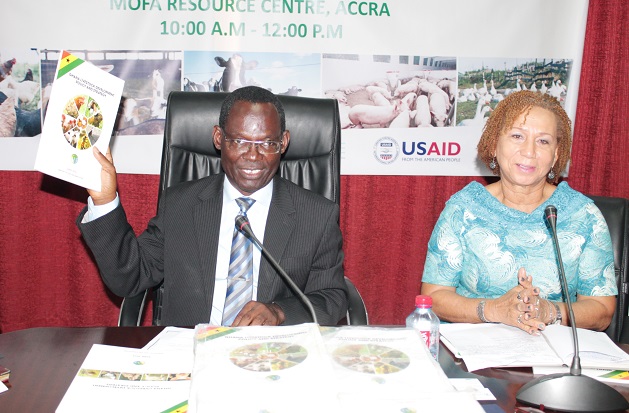
“Livestock sector has potential to create jobs”
The Minister of Food and Agriculture, Alhaji Mohammed Muniru Limuna, has said the livestock sector has the potential to create jobs in the country.
Advertisement
According to him, when the sector was well harnessed, it would not only create employment for the youth and women, but also ensure food security.
The minister, therefore, indicated that it was the desire of the government to improve livestock production in the country.
This was contained in a speech read on his behalf at the launch of the Ghana Livestock Policy Development and Strategy Document in Accra yesterday.
Commitment
Alhaji Lumina said the government had demonstrated its commitment to develop the poultry sector through the enforcement of a 40 per cent quota for local poultry producers in the country.
He, therefore, challenged stakeholders in the sub-sector to work hard to meet the quota allocated to them in order to cut down on the importation of poultry into the country.
Objective
The objective of the policy is to develop a competitive and more efficient livestock industry that would increase domestic production, reduce importation of meat and livestock products, as well as contribute to the improvement of the livelihood of livestock value chain actors and the national economy, while protecting the environment and preserving livestock biodiversity to ensure bio-security.
Policy
The Strategic Livestock Policy would be implemented in areas such as livestock input supply, production, marketing, demand and value addition.
Other areas include investment and financing of the livestock sector, health welfare, livestock development services and capacity building.
‘’Livestock development policy and strategy would provide the needed guidelines to facilitate work within the sub-sector to attract the required investment,” the minister said.
According to him, the sub-sector contributed eight per cent on the average of the country’s Gross Domestic Product (GDP) between 2006 and 2011.
Some of the challenges identified in the sector are lack of genetically improved breeds, inadequate adherence to hatchery regulation and operations, low quality and high cost of feed.



